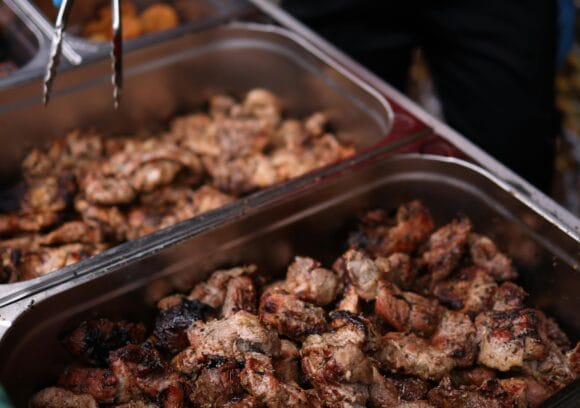On this page
Catering for Traditional Kenyan Weddings – Must-Have Dishes and Tips
Summary
When it comes to catering for traditional Kenyan weddings, food is more than just nourishment, it’s a symbol of culture, love, and community. A successful wedding feast blends tradition with hospitality, bringing people together to celebrate the union of two families. For many planners and caterers, catering for traditional Kenyan weddings requires thoughtful attention to both authenticity and quantity. Whether you’re organizing a ceremony in Nairobi or a rural village, understanding the expectations around food is critical. That’s why catering for traditional Kenyan weddings is as much about honoring culture as it is about satisfying hungry guests.
The Role of Food in Kenyan Wedding Traditions
In Kenyan culture, weddings are deeply communal events. It’s common for hundreds, sometimes even thousands, of guests to be invited. These guests expect generous servings of familiar, hearty, and culturally significant meals. Catering plays a central role in the day’s success. It’s not just about taste, but presentation, abundance, and hospitality.
Unlike Western-style weddings, where plated meals or buffets may be the norm, Kenyan weddings often feature food stations or large communal servings. It’s a time to showcase the best of the couple’s ethnic background, be it Kikuyu, Luo, Luhya, Kalenjin, or Swahili.
Must-Have Dishes for a Traditional Kenyan Wedding
This is the ultimate centerpiece. Whether it’s beef, goat, or lamb, nyama choma is grilled over an open flame and served hot. For many guests, it’s not a wedding without it. Pair it with kachumbari (a fresh tomato and onion salad) for the perfect bite.
A Swahili-inspired spiced rice dish cooked with meat (usually beef or goat), pilau is aromatic and flavorful. It’s considered both elegant and traditional, making it a staple at most weddings.
These soft, pan-fried flatbreads are beloved across Kenya. They’re versatile and pair well with stews, vegetables, or even sugar and tea. Freshly made chapatis show effort and warmth.
A Kikuyu delicacy, mukimo is made of mashed potatoes, peas, maize, and pumpkin leaves. It’s both colorful and nourishing, a classic comfort food and a symbol of home.
Ugali (maize flour meal) and sukuma wiki (collard greens) are quintessential Kenyan staples. They may be humble, but in a traditional setting, they represent sustenance and cultural pride.
For coastal communities, coconut milk fish dishes are a luxurious treat. This Swahili delicacy often graces high-end traditional weddings and adds diversity to the menu.
For breakfast or evening guests, Kenyan doughnuts (mandazi) with spiced chai offer a sweet and satisfying experience.
Tips for Successful Catering for Traditional Kenyan Weddings
Every Kenyan community has unique traditions. Luo weddings may include fish dishes, while Kamba weddings might focus more on mbuzi choma (roast goat). Consult the couple or their families to ensure cultural elements are respected.
Portion sizes at traditional weddings are generous. Guests often expect second or third servings, so planning the right quantities is vital. Hire caterers with experience in large-scale traditional events.
Even traditional foods should be served elegantly. Using warmers, traditional serving dishes, and clean, uniform presentation goes a long way in impressing guests.
While most Kenyan dishes are meat-heavy, don’t forget to accommodate vegetarians or health-conscious guests. Include options like githeri (maize and beans), sautéed vegetables, and fruit platters
The sheer size of most Kenyan weddings can cause delays if service isn’t well-coordinated. Consider buffet stations with multiple servers, or food stations organized by dish type or ethnic origin.
In addition to soda and juice, you might offer traditional brews like mursik (fermented milk) or hibiscus tea. These touches make the event feel authentically Kenyan.
Final Thoughts
Successfully catering for traditional Kenyan weddings involves more than just serving food. It’s about honoring cultural roots, satisfying a large crowd, and making the day memorable through taste and hospitality. From must-have dishes like nyama choma and pilau to service tips and presentation, every detail counts. Whether you’re a caterer, planner, or the couple themselves, understanding the depth of food traditions can elevate the celebration.
Ultimately, catering for traditional Kenyan weddings is an art a fusion of heritage, flavor, and generosity. Get it right, and your guests will remember the meal as fondly as the vows.

Contact Us
Looking for reliable and authentic catering for your special event? Contact Thoonjo Errand Runners today for professional catering services that bring traditional Kenyan flavors right to your celebration!


